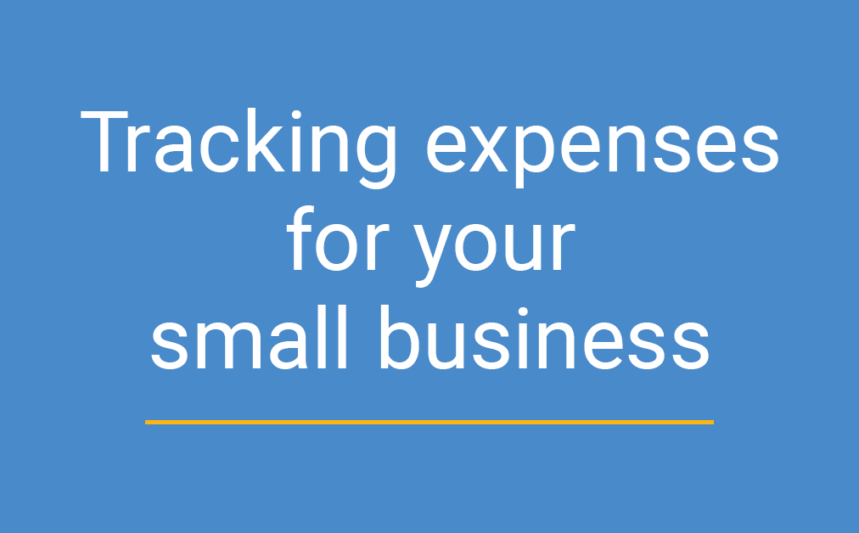5 ways to track expenses for your small business
Many small businesses struggle to stay on top of their business expenses. According to the Federal Reserve Small Business Credit Survey:
- 65% of firms surveyed said that paying operating expenses was a top financial challenge.
- 51% of business owners had to pay for business expenses with personal funds due to pandemic-related business challenges.
Tracking expenses for your small business will help you strengthen your financial foundation, tackle financial challenges, and meet your essential business expenses. Read through this business expense guide from your experts at Liberty Bay to learn more.
What counts as a business expense?
Business expenses describe any costs needed to operate your business. Subtracting your expenses from your revenue will show your net profit or loss.
The two main categories of business expenses are direct and indirect expenses, but there are a few other helpful labels you can use to track your expenses:
- Direct expenses include any costs of executing work for your clients or customers. These are also called cost object expenses and are the opposite of indirect expenses.
- Indirect expenses are typically unrelated to specific projects, services, or products. Examples include general office supplies, business insurance, and payroll.
- Fixed expenses are any regular or ongoing expenses that don’t vary over time. Office rent would be a fixed indirect expense.
- Variable expenses are ongoing expenses that may change over time. Utility bills would be a variable indirect expense.
- Periodic expenses are infrequent or irregular expenses that are hard to plan for, such as traveling, emergencies, or attending conventions and networking events.
- Accrued expenses describe expenses that have occurred but have not been paid for yet – for example, if you’ve purchased supplies from a vendor but haven’t received an invoice.
You should track these expenses in an expense record, or a list of all your costs during a specific period. Organizing your expenses by date, client, or other categories will help you get a clearer picture of your business’s financial health.
Why should I track business expenses?
Here are just a few things tracking business expenses can help you achieve:
- Budgeting more efficiently. Knowing how much you have and what you usually spend will empower you to stick to a set budget and trim expenses. You can also benchmark against others in your industry to determine if your costs make sense.
- Managing and optimizing cash flow. Income streams often vary during the year. It’s essential to anticipate slowdowns in cash flow, determine growth opportunities, and define areas for improvement.
- Staying on top of tax-related items. Tracking your expenses is essential for preparing small business financial statements for tax season and taking advantage of tax deductions.
- Monitoring changes in expenses. If you can identify when your expenses are higher or lower than planned, you’ll be better able to spot problems and opportunities right away.
- Ensuring necessary expenses are covered. Being confident you can meet essential business expenses such as payroll and office rent will give you more time and mental energy to focus on what you do best: running your business.
- Receiving financial support. Many small businesses were eligible for pandemic-related federal support such as Paycheck Protection Program loans and similar programs that assist small businesses with certain eligible business expenses. To qualify for these types of financial support, you need accurate financial statements.
The more closely you track your business expenses, the better you can analyze your financial health for budgeting, planning, and optimizing purposes.
How to track business expenses for small businesses
There are a few different ways you can track expenses for your small business. Read through the following steps, and make sure to reach out to your Liberty Bay experts if you have questions.
1. Choose a consistent accounting method
All small businesses should choose a bookkeeping method to track expenses accurately. Bookkeeping is an organized method of monitoring financial transactions. Small businesses typically use one of these methods:
- Cash basis accounting is a straightforward approach that involves recording transactions, such as when you make any revenue or pay for expenses, whenever payments are received or paid out. This method is a type of single-entry bookkeeping.
- Accrual accounting involves double-entry bookkeeping. This slightly more complex method requires you to record transactions as soon as they occur, regardless of when payments are received or paid out, to create a more accurate, long-term financial picture.
Once you have chosen a method for reporting income and expenses, you can decide what tools you need to monitor financial transactions related to your business.
2. Keep your receipts organized
You need documentation to claim something as a business expense. To monitor your business-related financial transactions, you will need to record documents such as invoices, receipts, and other transaction records.
Paper receipts can be difficult to track, so it’s best to avoid using cash. Alternatively, you can digitize receipts using a scanner or app. Digitally capturing and filing transaction records will help you keep an organized record for tracking expenses and preparing for tax season.
Whether you are using paper or digital invoices and receipts, make sure you store and organize your information correctly to make it easier to monitor and report your income and expenses.
3. Monitor all income and expense transactions
You can record your transactions in a spreadsheet to make sure your revenue and expenses are accounted for. Set up a template to track each transaction’s purpose, type, amount, and more.
If tracking all of this information yourself seems daunting, cloud-based accounting software solutions can automate record-keeping and expense tracking all in one spot. These solutions simplify the work needed to monitor and organize expenses, make payments, scan and store receipts, and overall keep your financial health high.
Many of these solutions integrate with your various business bank accounts to make the tracking process even easier.
4. Open dedicated business bank accounts
If you don’t already have dedicated business bank accounts, we highly recommend looking into some small business banking services. Separating your business and personal expenses makes it easier to track your financial transactions, claim them as deductions, and take advantage of personal liability protection.
Recommended business bank accounts include a business checking account, a business savings account, a business credit card, and a merchant services account if you need to accept credit and debit card transactions from customers. Having these accounts will allow you to organize expenses, cover cash flow shortfalls, and establish good business credit.
When you open a business banking account with Liberty Bay, you can sync your account with Quicken to make accounting a breeze. Learn more about your digital banking options at LBCU.
5. Review and categorize expenses regularly
Tracking your transactional data will allow you to produce reports and statements on essential aspects of your finances, such as your income, inventory, cash flow, accounts payable, and accounts receivable. You should plan to review these reports regularly to identify right away if something doesn’t look quite right.
Accounting software can also increase the accuracy of your reports and even generate them automatically for you so you can review your spending categorically or compare information across the years. Regularly analyzing your expenses will help you keep a close eye on your business’s financial health.
Understanding how to track expenses for your small business can empower you to review, analyze, and use your numbers to stay stable and grow your business. The pandemic has shown us more clearly than ever how essential this skill is for the financial health of your organization and your ability to make informed business decisions.
Want to learn more? Go through our free FA$Ttrack playlist on Small Business Essentials or reach out to our experts for more information. We’re here to help with whatever you need, anytime you need it.


